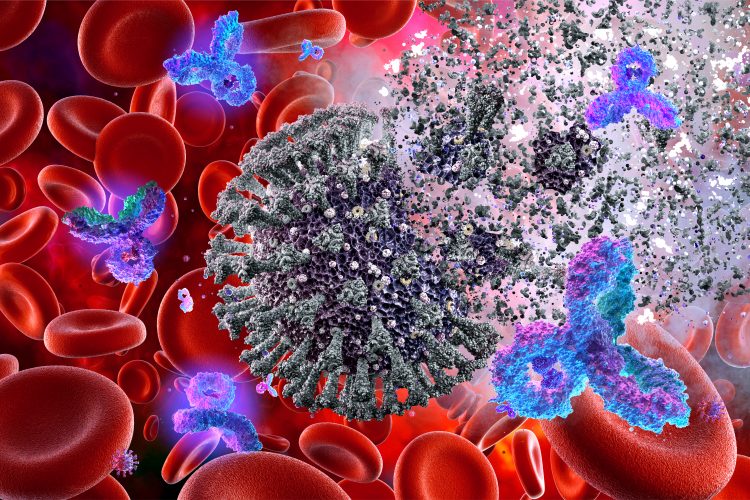FDA approves sotrovimab for emergency use in treating COVID-19
Posted: 1 June 2021 | Hannah Balfour (European Pharmaceutical Review) | No comments yet
The FDA granted emergency use authorisation to the monoclonal antibody sotrovimab as a treatment for mild-to-moderate COVID-19 in certain adult and paediatric patients.


The US Food and Drug Administration has issued an emergency use authorization (EUA) for the investigational monoclonal antibody therapy sotrovimab for the treatment of mild-to-moderate COVID-19 in adults and paediatric patients (12 years of age and older weighing at least 40kgs) with positive results of direct SARS-CoV-2 viral testing and who are at high risk for progression to severe COVID-19, including hospitalisation or death.
The safety and effectiveness of this investigational therapy continues to be evaluated. Sotrovimab is not authorised for patients who are hospitalised due to COVID-19 or require oxygen therapy due to COVID-19.
“With the authorisation of this monoclonal antibody treatment, we are providing another option to help keep high-risk patients with COVID-19 out of the hospital,” said Dr Patrizia Cavazzoni, director of the FDA’s Center for Drug Evaluation and Research. “It is important to expand the arsenal of monoclonal antibody therapies that are expected to retain activity against the circulating variants of COVID-19 in the United States.”
Monoclonal antibodies are laboratory-made proteins that mimic the immune system’s ability to fight off harmful antigens such as viruses. Sotrovimab is a monoclonal antibody that is specifically directed against the Spike protein of SARS-CoV-2 virus that causes COVID-19 and inhibits the virus’ attachment and entry into human cells.
The EUA is not an FDA approval, it simply means that, based on the totality of available evidence, the known or potential benefits of the product outweigh any known or potential risks when used during an emergency. Based on the FDA’s review of the available evidence, the agency determined that it is reasonable to believe that sotrovimab may be effective in treating adults and certain paediatric patients with mild-to-moderate COVID-19. The EUA also hinges upon there being no adequate, approved and available alternative treatments to sotrovimab.
The data supporting this EUA for sotrovimab are based on an interim analysis from a Phase I/II/III randomised, double-blind, placebo-controlled clinical trial in 583 non-hospitalised adults with mild-to-moderate COVID-19 symptoms and a positive SARS-CoV-2 test result. Of these patients, 291 received sotrovimab and 292 received a placebo within five days of onset of COVID-19 symptoms. The primary endpoint was progression of COVID-19 (defined as hospitalisation for greater than 24 hours for acute management of any illness or death from any cause) through day 29. Hospitalisation or death occurred in 21 (seven percent) patients who received placebo compared to three (one percent) patients treated with sotrovimab, an 85 percent reduction.
The FDA is carefully monitoring circulating viral variants and their sensitivity to monoclonal antibodies authorised to treat COVID-19, including sotrovimab. Laboratory testing showed that sotrovimab retains activity against the current circulating variants first reported in the UK, South Africa, Brazil, California, New York and India.
The EUA allows for sotrovimab to be distributed and administered as a 500 milligram single dose intravenously by health care providers. The EUA requires that fact sheets that provide important information about using sotrovimab in treating COVID-19 be made available to health care providers and to patients, parents and caregivers, including dosing instructions, potential side effects and drug interactions. Potential side effects of sotrovimab include anaphylaxis and infusion-related reactions, rash and diarrhoea.
Related topics
Antibodies, Biologics, Clinical Trials, Drug Safety, Regulation & Legislation, Therapeutics, Viruses









